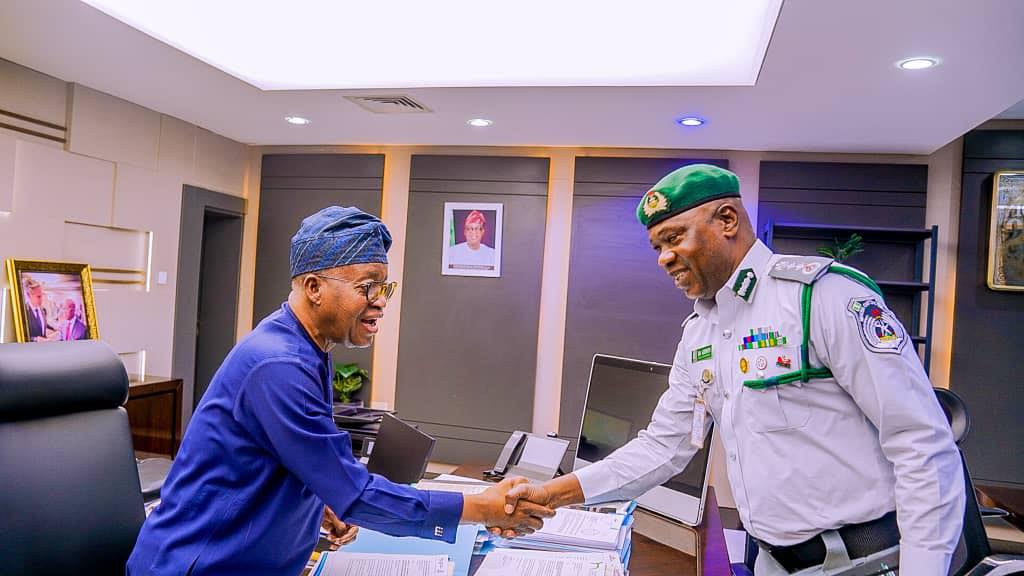
In a major push to improve port efficiency and competitiveness, Nigeria’s minister of Marine and Blue Economy; Adegboyega Oyetola, Minister of Transportation; Senator Said Ahmed Alkali, and Comptroller General of Customs Bashir Adewale Adeniyi including the Managing Director of the Nigerian Railway Corporation (NRC); Mr Fidet Okhiria have joined forces to tackle the longstanding issue of port congestion.
The meeting which held on Monday resulted in a comprehensive strategy that prioritizes the use of modern technology and strengthens collaboration between key stakeholders.
Recognizing the inefficiency of physical inspections, the meeting agreed to phase them out in favour of non-intrusive inspection technology, primarily scanners. This shift is expected to significantly reduce clearance time and streamline cargo movement.
According to a joint press statement by the Ministry of Marine and Blue Economy and the Nigeria Customs Service signed by the Media Aide to the minister of Marine, and Blue Economy; Ismail Omipidan and the National Public Relations Officer of NCS, Abdullahi Maiwada, it was agreed at the meeting that existing scanners at Apapa, Tincan Island, Onne, and PTML ports will be repaired and optimized. Additionally, mobile scanners will be strategically deployed to ensure swift inspections.
This is even as the Nigerian Railway Corporation (NRC) reaffirmed its commitment to transporting cargo to inland container depots and dry ports in order to divert traffic from major ports, alleviating congestion and facilitating faster clearance.
To address the challenge posed by ongoing rail track construction at Apapa port, the NRC agreed to bypass the fixed scanner as this will ensure uninterrupted scanning operations while allowing essential infrastructure upgrades.
The meeting acknowledged the potential of public-private partnerships in installing and maintaining scanning technology. This collaborative approach aims to guarantee consistent efficiency and encourage innovation in cargo inspection processes.
The ministers noted that the meeting highlights the Nigerian government’s dedication to creating a streamlined and efficient trade environment.
While adding that the implementation of these resolutions is expected to have a significant impact on port decongestion, trade facilitation, and overall port competitiveness.















